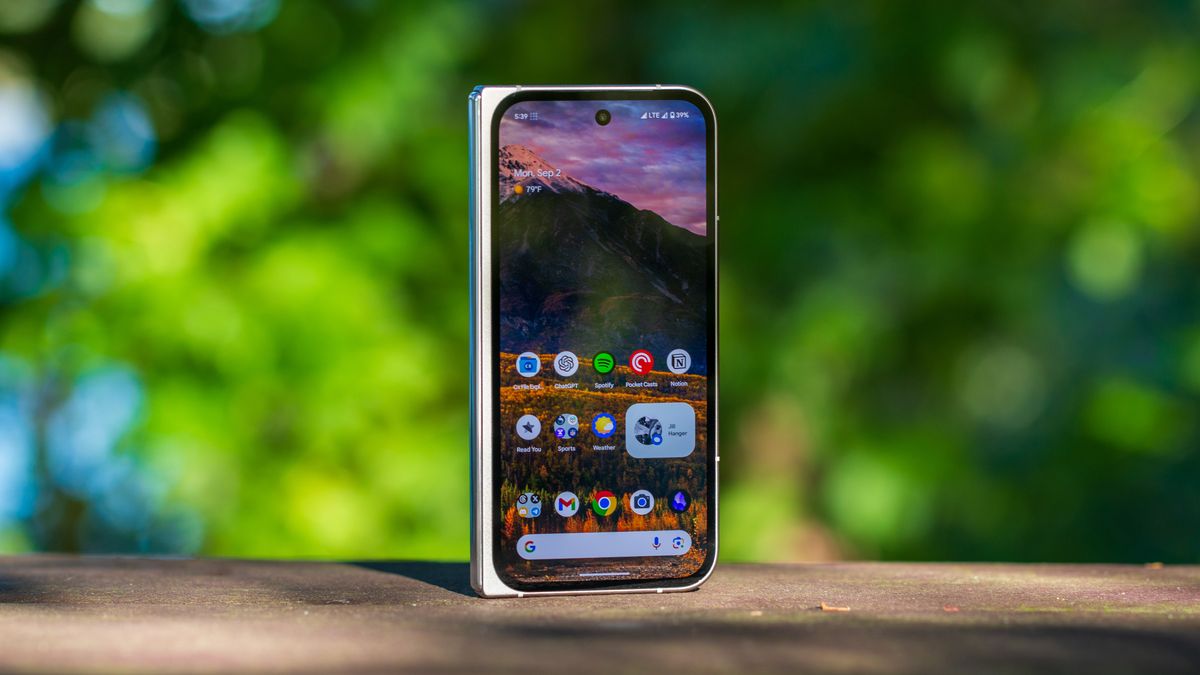Almost a year after making a splash in the foldable scene, Google is back again with the Pixel 9 Pro Fold. While there are plenty of changes to be found across the board, there is still a lot to be concerned about Google’s plans for its future foldable phones.
That being said, Google marched forward, seemingly committed to offering an alternative option to Samsung’s Galaxy Z Fold line. Considering that the options in North America are already slim, I’m happy to see the 9 Pro Fold hit the market, even if it looked exactly like the original Pixel Fold.
Thankfully, that’s not the case here, as Google went back to the drawing board, and not just for the design. There are a bunch of new software features that you’ll only find on Google’s foldable phone, all aiming to provide the best Pixel experience that money can buy.
At the time of this writing, I’ve only had the Pixel 9 Pro Fold in my possession for less than a week, so I haven’t had enough time to come to a final conclusion.
Google Pixel 9 Pro Fold: Price and availability
The Pixel 9 Pro Fold was announced at the Made by Google event on August 13, 2024 alongside the rest of the Pixel 9 lineup, Pixel Buds Pro 2, and Pixel Watch 3. There are only two configurations available, as the 9 Pro Fold comes with either 256GB or 512GB of storage. These arrive with a price of $1,799 or $1,919, respectively.
Regardless of which storage option to choose from, everything else about the device remains the same. This includes featuring 16GB of RAM across both configurations. Additionally, the Pixel 9 Pro Fold comes in two colors, as you can get Google’s latest foldable in Obsidian or Porcelain.
Google Pixel 9 Pro Fold: Design and displays
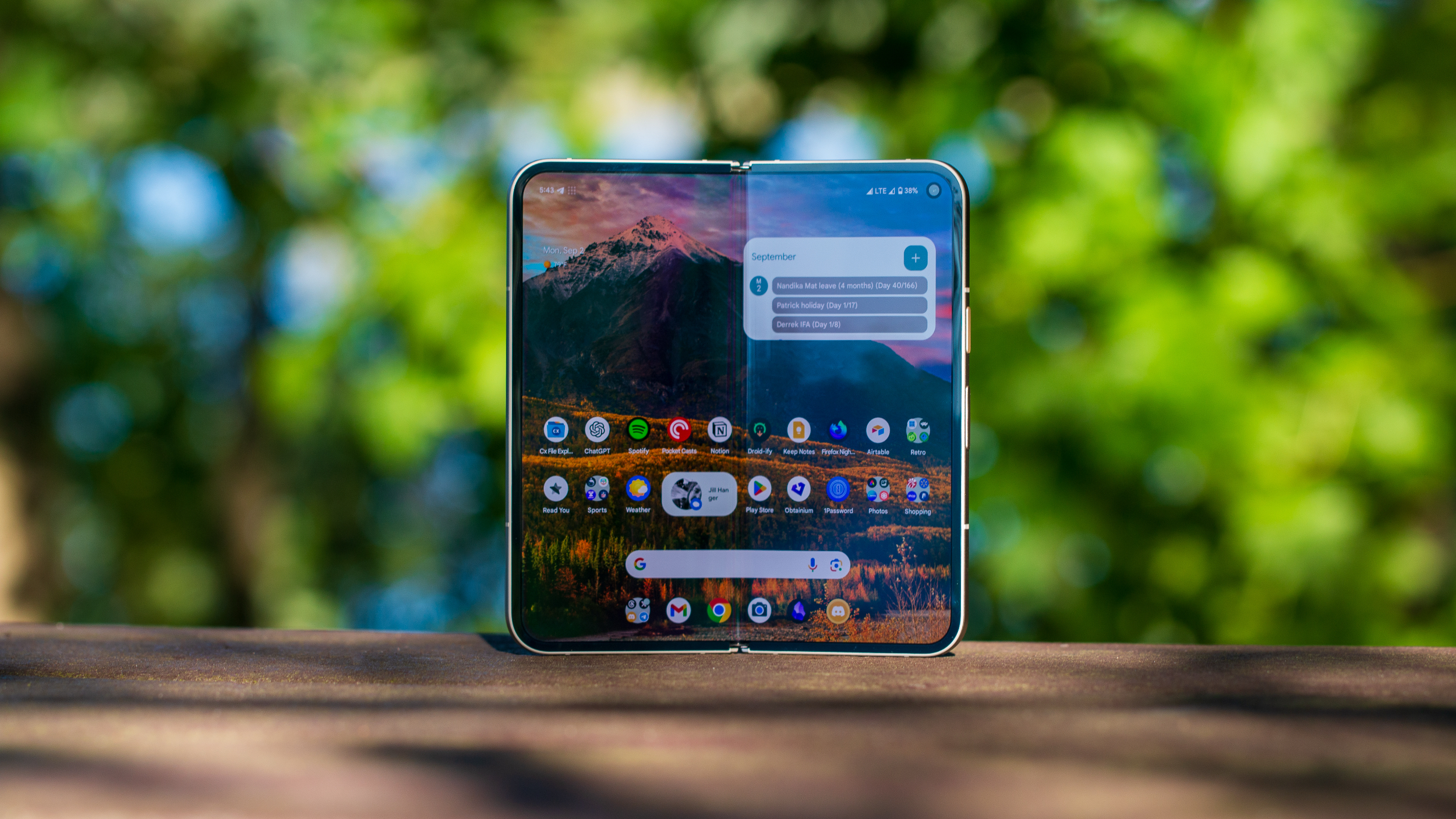
Going into the year, I wasn’t exactly sure whether Google even had plans to release a successor to the Pixel Fold. Part of it was because of how divisive the company’s first foldable phone was. On the one hand, it was great to see Google take this new form factor more seriously. On the other, it almost felt like the Pixel Fold was already out of style.
As I’ve spent more time with the Pixel 9 Pro Fold, it continues to blow my mind that this phone comes from the same company. It’s sleek, svelte, relatively lightweight, and is everything that I wanted from the original Pixel Fold.
Google seems to be laser-focused on creating the thinnest* foldable. Really, it’s just that Google wants something that can help it stand out from the crowd here in North America. Even with reports claiming that the Galaxy Z Fold 6 is falling short of expectations, it’s still Samsung’s world that we’re living in.
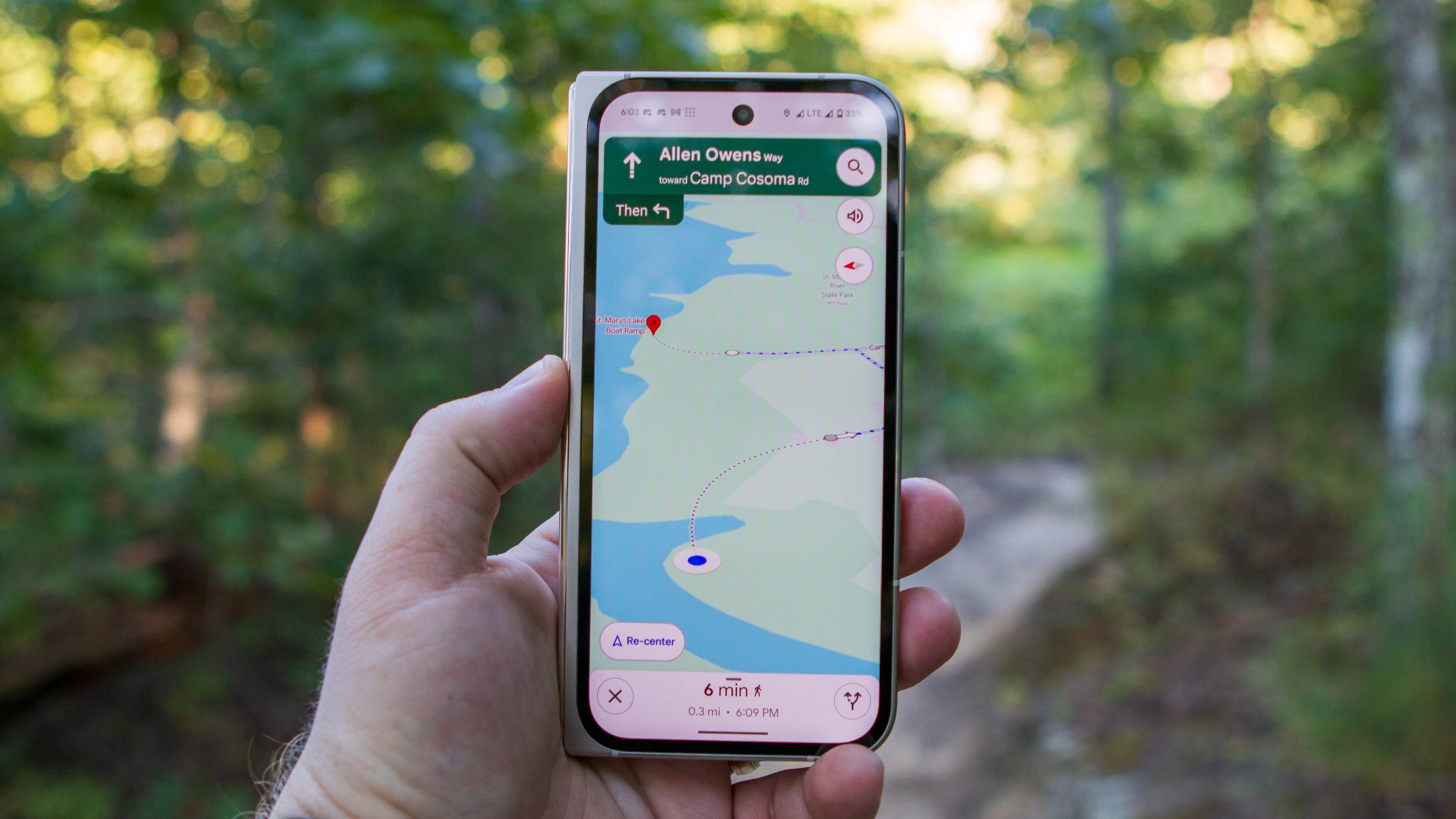
That being said, the 9 Pro Fold is a huge step in the right direction. The cover screen is small and wide enough to rely on it more than I anticipated. It’s a “problem” that I had with the original Pixel Fold, along with the OnePlus Open, as I just don’t find myself unfolding it as frequently as I did with the Fold 6.
In reality, it’s not actually a problem; it’s just something that I find funny. The best way I can think of to explain this is that the Fold 6 entices you to open it whenever you want to do something more than turn on some lights or respond to a text. whereas the 9 Pro Fold aims to provide a traditional phone experience with the added bonus of offering a larger screen if you want it.
Speaking to that larger screen, I really just don’t find myself using it all that often, unless I want to play a game or need to do some split-screen multitasking. Well, there is one other reason, but I’ll get to that in a bit.
That’s not to say that the inner screen is bad, as that couldn’t be further from the truth. You won’t find headlines about the 9 Pro Fold not being able to fold flat or that the crease feels like you’re running your finger across a canyon. It’s just about as perfect as it can get, at least compared to other foldable phones that I’ve used and tested.
Google Pixel 9 Pro Fold: Performance
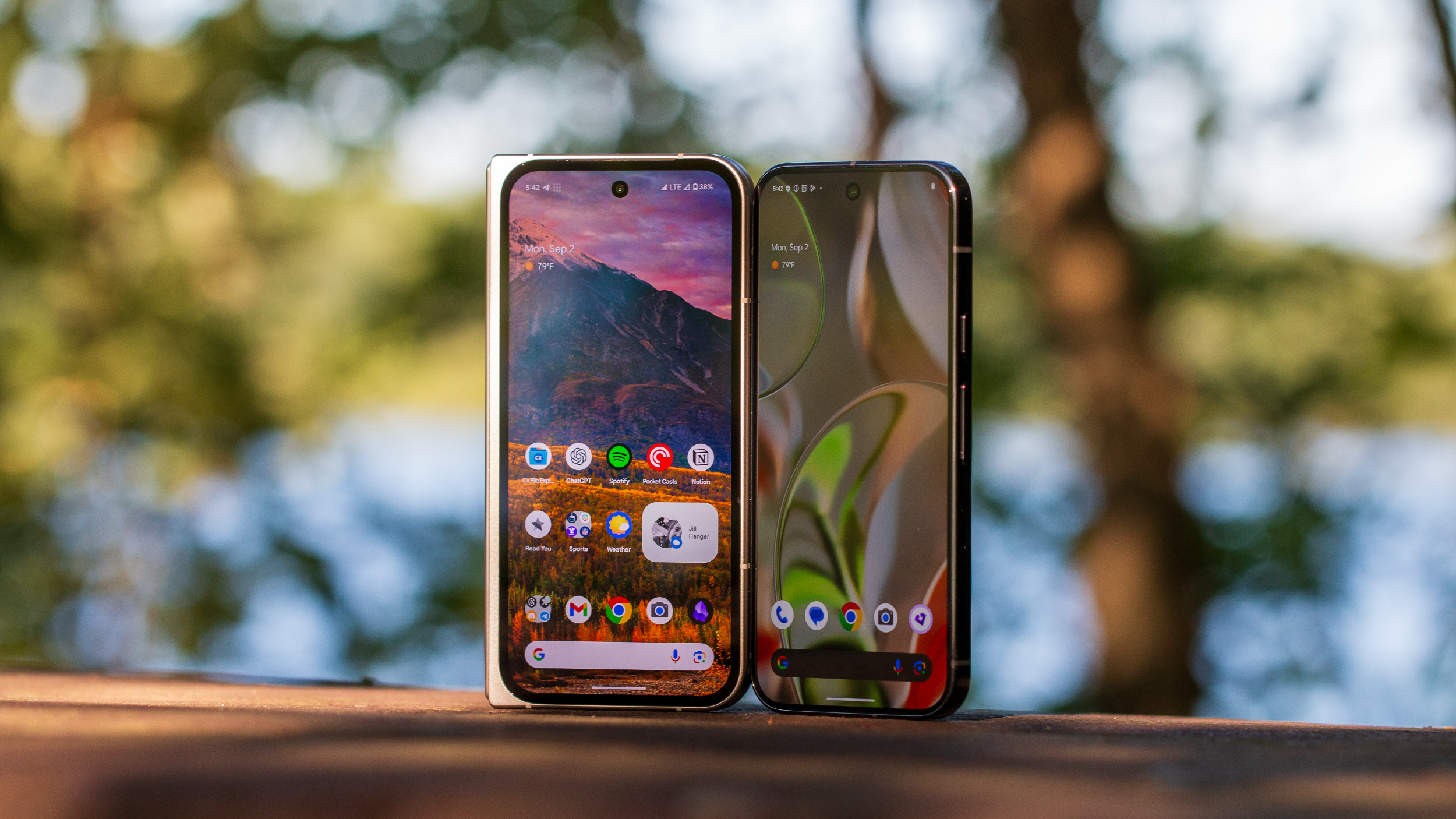
In a perfect world, Google’s Tensor series of chips would be able to rival Qualcomm, but we’re simply not there yet. The Tensor G4 in the Pixel 9 lineup doesn’t offer a lot in the way of overly meaningful improvements compared to the G3. Instead, Google opted for the “safe” approach of optimizing it for better battery life and for Gemini.
Sure, I wish this weren’t the case and that Google was able to really take the battle to Samsung and Qualcomm. But, seeing as this is the hand we’ve been dealt, there’s really not much I’ve found to complain about. Day-to-day tasks are a breeze, battery life lasts all day, and I can play most of the games I want to.
The only exception to this, that I’ve found so far, is that I haven’t been able to use a Switch emulator. However, part of this is likely due to the drivers not being compatible with the emulators I’m using.
It could also just be the emulators themselves, as I haven’t run into any other problems when using the 9 Pro Fold as a portable retro handheld. Still, it’s rather curious seeing as every other Android phone and handheld I have is able to at least boot into a game, whereas I can’t even make it that far with the 9 Pro Fold.
| Category | Google Pixel 9 Pro Fold |
|---|---|
| Inner display | 8-inch Super Actua Flex display, 120Hz LTPO AMOLED (1-120Hz), 2076 x 2152, HDR, 2700 nits, Ultra Thin Glass |
| Cover display | 6.3-inch Actua display, 120Hz OLED (60-120Hz), 1080 x 2424, HDR, 2700 nits, Gorilla Glass Victus 2 |
| Processor | Google Tensor G4, Titan M2 security module |
| Memory | 16GB |
| Storage | 256GB / 512GB |
| Rear Camera 1 (main) | 48MP ƒ/1.7, 1/2-inch sensor, 82-degree wide-angle, OIS+EIS, Quad PD, 4K/60 recording |
| Rear Camera 2 (ultrawide) | 10.5MP, ƒ/2.2, 1/3.4-inch size, 127-degree FOV, Dual PD AF |
| Rear Camera 3 (telephoto) | 10.8MP, ƒ/3.1, 1/3.2-inch size, 5x optical zoom, OIS+EIS, 20x Super Res Zoom, Dual PD AF |
| Rear LDAF sensor | Multi-zone laser autofocus |
| Cover camera | 10MP, ƒ/2.2, 87-degree FOV |
| Inside camera | 10MP, ƒ/2.2, 87-degree FOV |
| Video Resolution | 4K/60FPS on all cameras but the inside camera. 10-bit HDR on rear camera |
| Connectivity | Wi-Fi 7, 5G (mmWave and Sub-6), Bluetooth 5.3, NFC, AptX HD, USB-C 3.2, Physical and eSIM, Satellite SOS |
| Ingress Protection | IPX8 dust and water resistance |
| Security | Side-mounted fingerprint scanner, face unlock |
| Audio | Stereo sound, USB-C |
| Battery | 4650mAh, 45W wired charging, Qi wireless charging |
| Dimensions (folded) | 155.2 x 77.1 x 10.5mm |
| Dimensions (unfolded) | 155.2 x 150.2 x 5.1mm |
| Weight | 257g |
| Hinge | Multi-alloy steel w/ high-strength aluminum alloy cover |
| Colors | Obsidian, Porcelain |
| Software support | 7 years of Pixel and OS updates |
Something else I’ve noticed about using the phone for multitasking is that Google might have the best split-screen experience on the market. Because of the changes to the design, using two apps side-by-side is basically the same as if you were holding a Pixel 9 Pro in either hand.
I haven’t found any issues with apps scaling, save for 1Password which still doesn’t seem to know how to handle larger screens that aren’t tablets. It’s really getting to the point that I’m considering making the switch to a different password manager entirely, just because of how frustrating it is.
Presumably, that was at least part of why the decision to overhaul the design was made. Of course, it’s not the entire story, but I’ve honesty been appreciating and enjoying this way of multitasking. Sure, there are times that I want the more robust options offered by the Fold 6. But, it doesn’t take much to get overwhelmed with trying to place your app windows in the “correct” locations.
Google Pixel 9 Pro Fold: Unexpected usecase
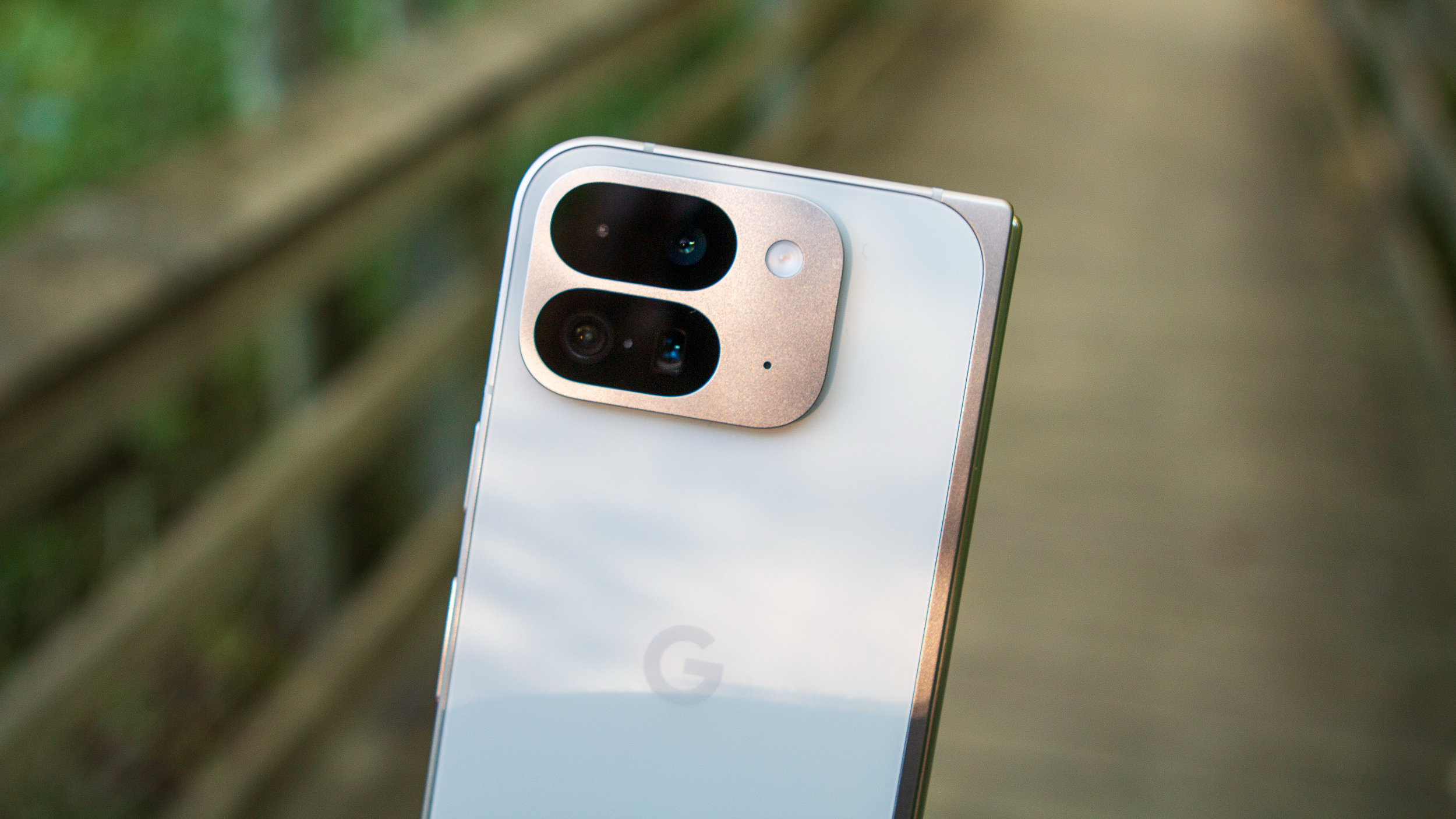
Due to the nature of what we do, I actually my review unit actually arrived while I was vacationing at the beach with my family. This meant trying to take as many pictures as possible whenever I could. Many of the best pictures were taken by my wife with her iPhone, but I found one unexpected benefit of the Pixel 9 Pro Fold.
Seeing as my son is just about to be seven months old, he’s only now starting to become more mobile. So I don’t have to worry all that much about blurry pictures while he’s playing with toys on the floor. However, something that we do struggle with is getting him to actually look at the camera.
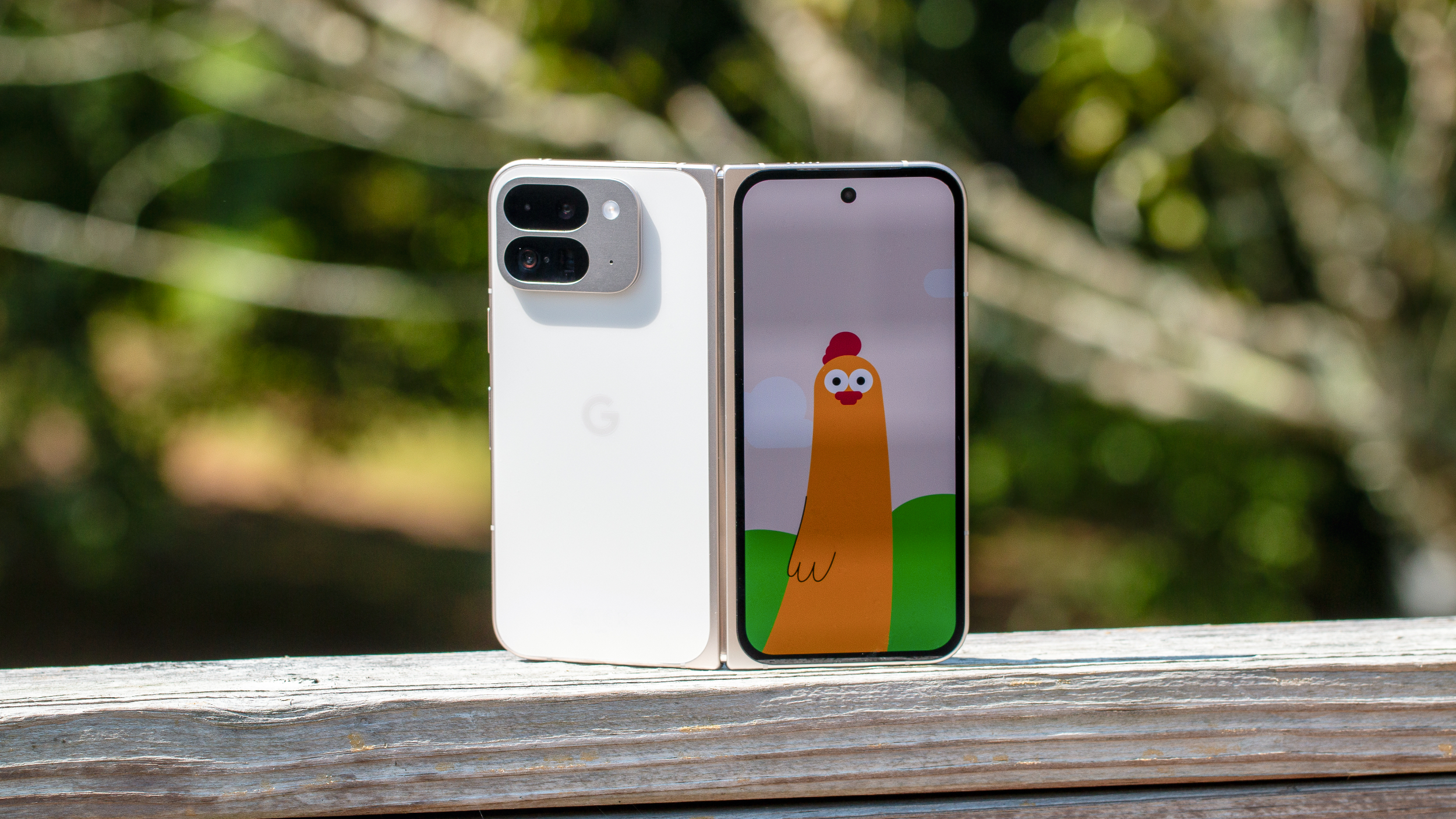
Enter “Made You Look.”
This isn’t a new Android feature, as Android Central’s managing editor Derrek Lee pointed out to me. A similar feature, called “Camera Cartoon” was already available for phones like the Motorola Razr Plus 2023. However, “Made You Look” quickly became my favorite feature on the 9 Pro Fold.
After a few moments of switching between the four different “faces” to see how he would react, I was finally able to get a smile out of him. Arguably just as important, he was actually looking at the camera, as opposed to trying to look at the people walking around the restaurant.
This turned out to be yet another feather in the cap of why foldable phones can be more versatile than slabs. Not to mention that I’m even more excited to take pictures since I have a better chance of getting a smirk or smile.
Google Pixel 9 Pro Fold: Competition
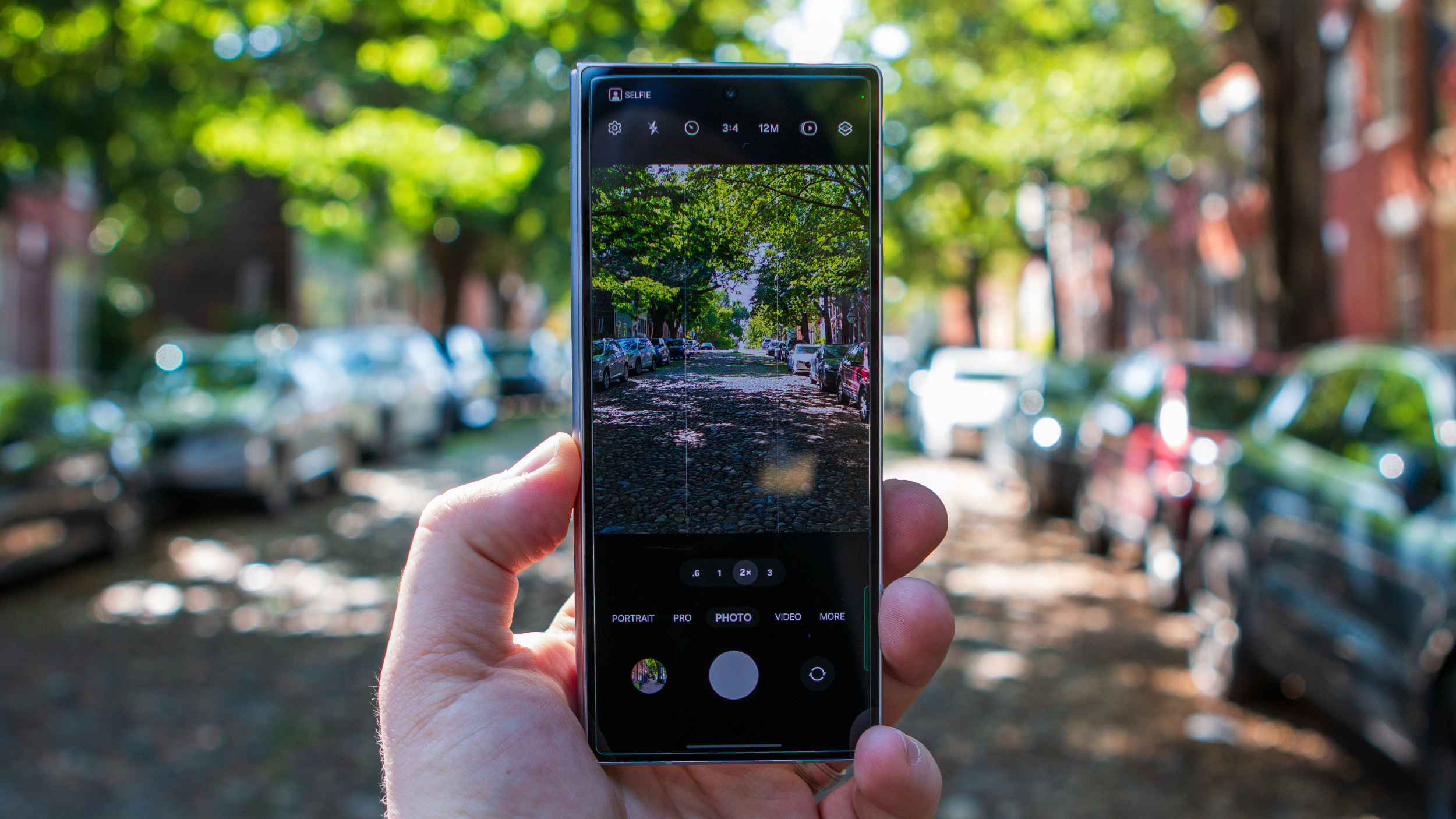
The biggest competition for Google is still the Galaxy Z Fold 6. That might be a different story if the OnePlus Open were available from carriers, but alas, it’s not. Samsung still owns the foldable space in North America, and for good reason. Not only is the software experience refined, but you also have the option to use a stylus with the S Pen.
Ignoring carrier availability, I would argue that the OnePlus Open provides even stiffer competition than Samsung. Both the Open and 9 Pro Fold offer similar designs, seeing as both devices have cover screens that align better with traditional smartphones. While Open might have better camera hardware, Google still leads the way in image processing.
Google Pixel 9 Pro Fold: Conclusion and what’s next
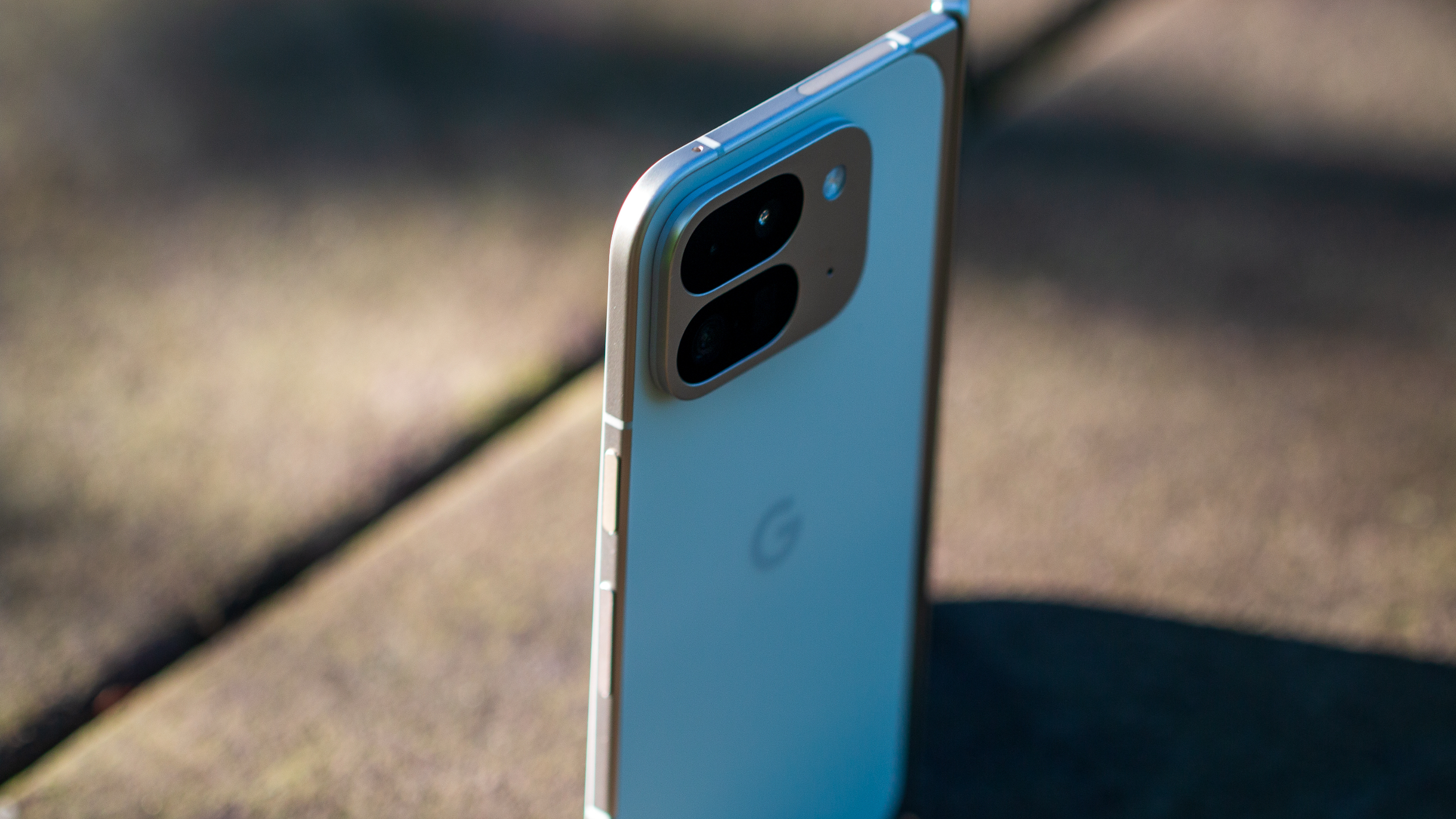
You probably made it this far and are wondering about all of Google’s other features. Like, how does Gemini Live perform? What about the photo and video options besides Made You Look? Well, as I stated initially, I’ve only had the 9 Pro Fold for a few days, so I haven’t yet had enough time to put everything through its paces.
The AI features are only a part of the story, and despite Google leaning more heavily into Gemini, there’s a lot more going on here. I plan to put the new Desktop Mode through its paces, along with trying to see how hard I can push the Tensor G4 before and how it stacks up to the competition. So be sure to keep an eye out, as I’ll be updating this review in the coming weeks.
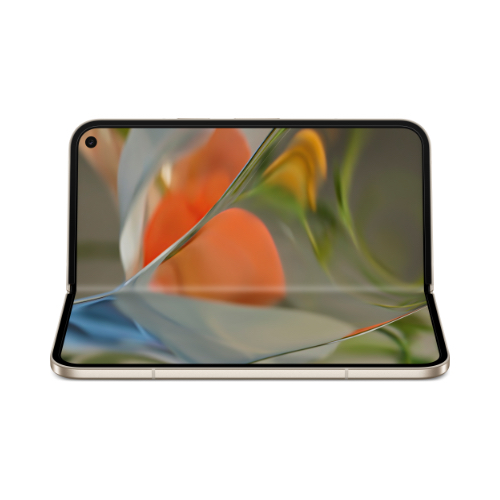
Simply incredible
It’s mind boggling to think that Google could introduce such a drastically different device compared to the first iteration. However, we couldn’t be more thankful that the 9 Pro Fold shares little with its predecessor.

